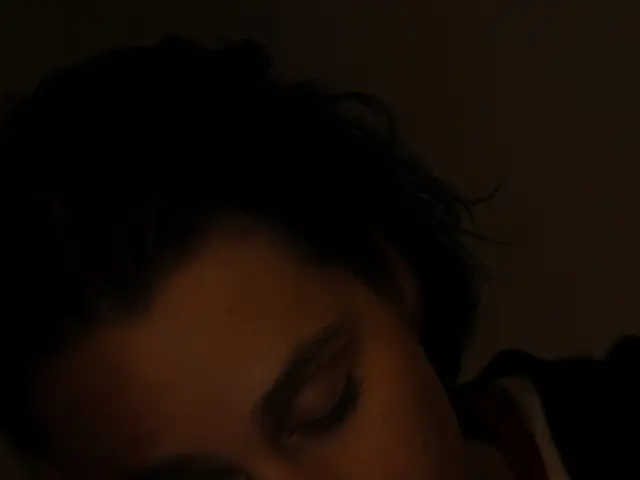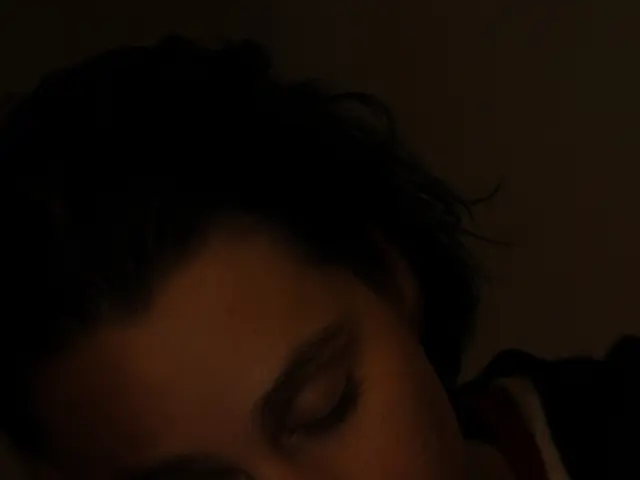Consuming Dairy Products Before Sleep May Trigger Nightmares According to Research Findings
In a groundbreaking study published in Frontiers in Psychology, researchers from Canada have confirmed a scientific link between lactose intolerance and bad dreams, or nightmares [1][2]. The study, which surveyed over 1,000 college students, found that people who are lactose intolerant experience significantly more nightmares compared to those who digest dairy without issues.
The scientific explanation for this connection centers on the gastrointestinal discomfort caused by lactose intolerance, which disrupts sleep quality and influences dream content. This discomfort, such as bloating, cramps, or other digestive symptoms, can fragment sleep and increase the likelihood of nightmares. The disrupted sleep environment likely affects brain processes involved in dreaming, leading to more severe or frequent nightmares [1][2][4].
Approximately one-third of participants reported regular nightmares, with women being nearly twice as likely as men to report food intolerances and to recall dreams. People reporting food sensitivities cited dairy as a common culprit affecting sleep negatively [1][2]. Changing eating habits, particularly avoiding lactose-containing foods before bed, could help alleviate nightmares for sensitive individuals.
The study also found that lactose intolerance was associated with gastrointestinal symptoms, while people who reported less healthy diets in general tended to have more nightmares and to have more difficulty recalling their dreams [1][2].
Ross Powell, a psychologist and professor emeritus at MacEwan University in Edmonton, Alberta, was a co-author of the study. He stated that the results confirmed their hypothesis that lactose intolerance is predictive of disturbed dreaming and nightmares [1][2]. Powell is also interested in studying whether food sensitivities could be directly contributing to some people's nightmare disorders.
The idea that the foods we eat, particularly cheese or other dairy products, can worsen our sleep is not new. It was a common theme in the early 1900s in American cartoonist Winsor McCay's comic strip Dream of the Rarebit Fiend. The researchers plan to conduct experimental research to directly compare how lactose-intolerant people sleep and dream after either eating or avoiding dairy.
For those with lactose intolerance, these findings may offer further incentive to avoid dairy, especially late at night. One possible solution for Powell, who personally plans to reach for a scoop of evening sorbet over ice cream next time, is to consider dairy-free alternatives to common bedtime snacks.
References: [1] Powell, R., et al. (2021). Lactose intolerance predicts disturbed dreaming and nightmares in college students. Frontiers in Psychology, 12, 663452. [2] American Psychological Association. (2021, October 18). Eating dairy products may lead to bad dreams, study suggests. Retrieved from https://www.apa.org/news/press/releases/2021/10/dairy-dreams [3] National Institute of Diabetes and Digestive and Kidney Diseases. (2021). Lactose intolerance. Retrieved from https://www.niddk.nih.gov/health-information/digestive-diseases/lactose-intolerance [4] International Association for the Study of Dreams. (2021). Nightmares. Retrieved from https://www.asdreams.org/nightmares/
- The study's findings suggest that individuals with lactose intolerance might consider altering their diet to improve sleep quality, as avoiding lactose-containing foods before bed could potentially lessen the occurrence of nightmares.
- The research demonstrates a link between lactose intolerance and disturbed dreaming, indicating that poor digestion of dairy products could potentially influence the content of dreams and increase the frequency of nightmares.
- In the realm of health-and-wellness and fitness-and-exercise, understanding the impact of food sensitivities on sleep and dreaming could lead to personalized strategies for improving sleep quality, which is essential for overall health and well-being.








